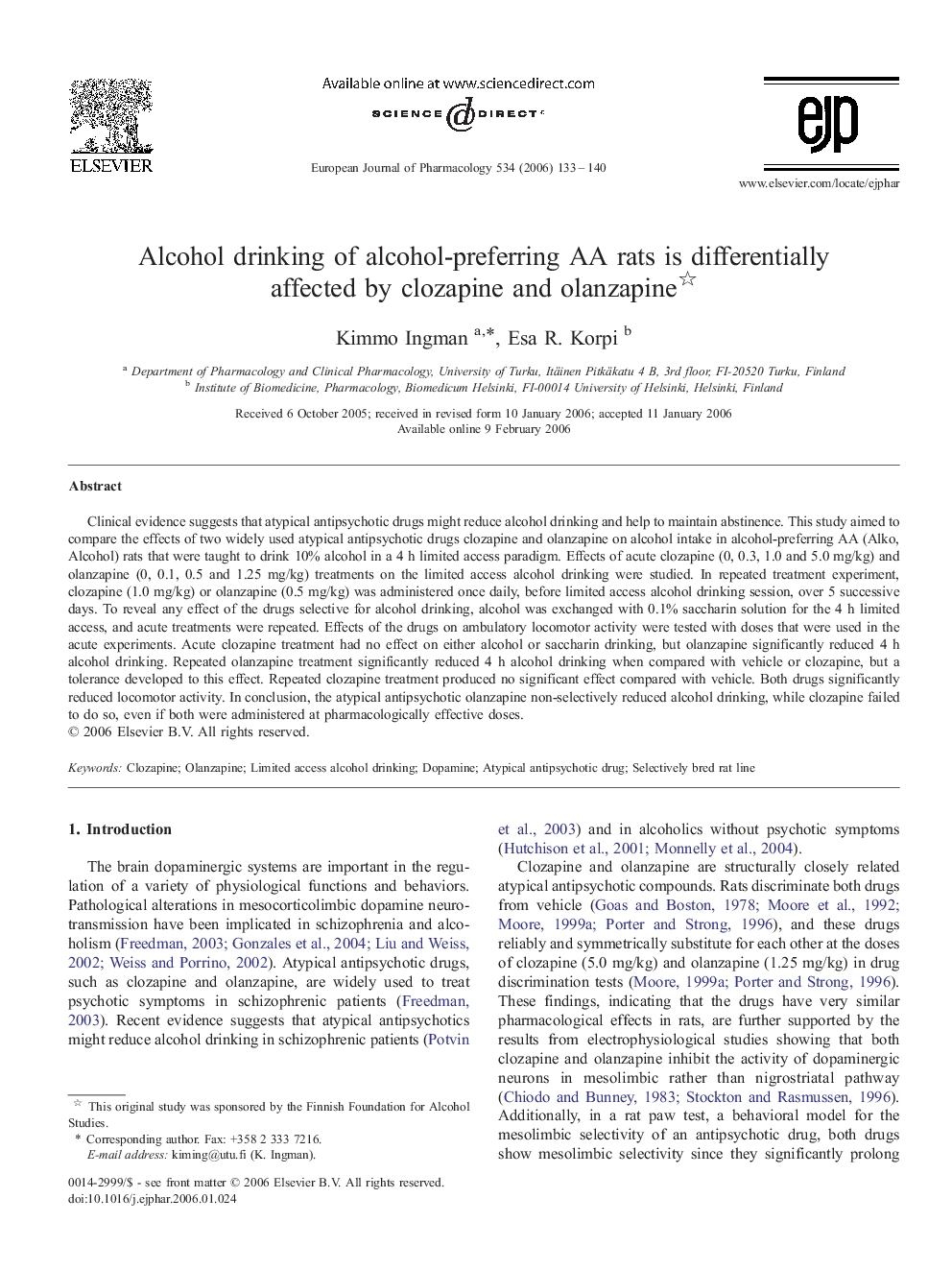| Article ID | Journal | Published Year | Pages | File Type |
|---|---|---|---|---|
| 2537481 | European Journal of Pharmacology | 2006 | 8 Pages |
Clinical evidence suggests that atypical antipsychotic drugs might reduce alcohol drinking and help to maintain abstinence. This study aimed to compare the effects of two widely used atypical antipsychotic drugs clozapine and olanzapine on alcohol intake in alcohol-preferring AA (Alko, Alcohol) rats that were taught to drink 10% alcohol in a 4 h limited access paradigm. Effects of acute clozapine (0, 0.3, 1.0 and 5.0 mg/kg) and olanzapine (0, 0.1, 0.5 and 1.25 mg/kg) treatments on the limited access alcohol drinking were studied. In repeated treatment experiment, clozapine (1.0 mg/kg) or olanzapine (0.5 mg/kg) was administered once daily, before limited access alcohol drinking session, over 5 successive days. To reveal any effect of the drugs selective for alcohol drinking, alcohol was exchanged with 0.1% saccharin solution for the 4 h limited access, and acute treatments were repeated. Effects of the drugs on ambulatory locomotor activity were tested with doses that were used in the acute experiments. Acute clozapine treatment had no effect on either alcohol or saccharin drinking, but olanzapine significantly reduced 4 h alcohol drinking. Repeated olanzapine treatment significantly reduced 4 h alcohol drinking when compared with vehicle or clozapine, but a tolerance developed to this effect. Repeated clozapine treatment produced no significant effect compared with vehicle. Both drugs significantly reduced locomotor activity. In conclusion, the atypical antipsychotic olanzapine non-selectively reduced alcohol drinking, while clozapine failed to do so, even if both were administered at pharmacologically effective doses.
